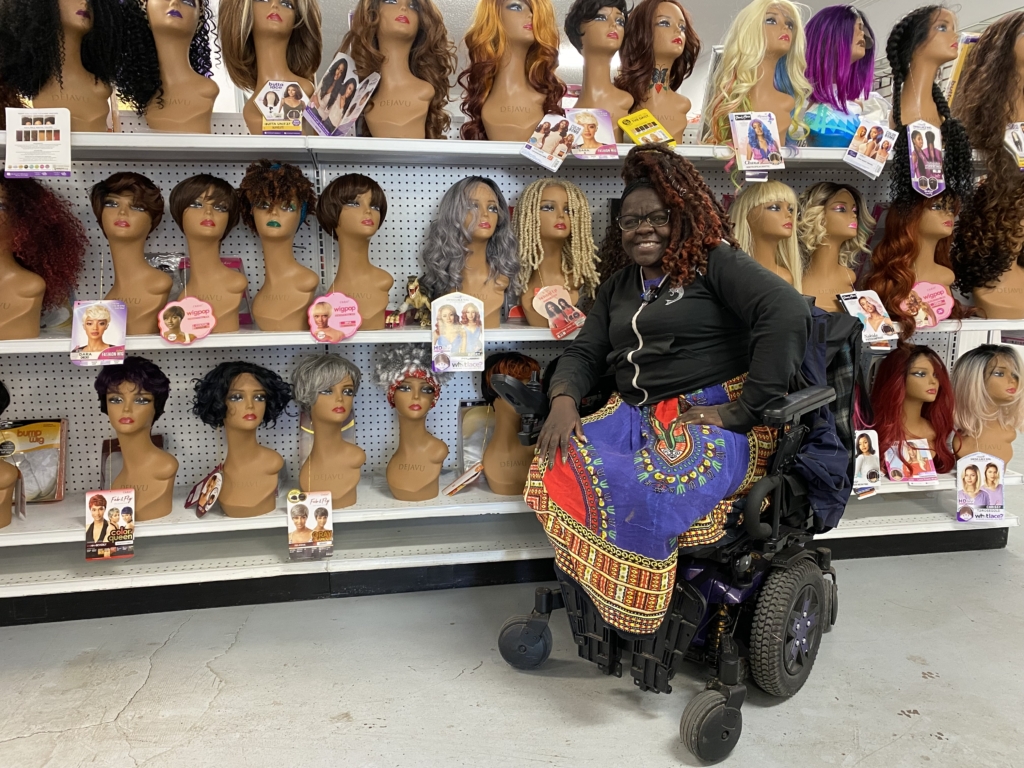
Meet Mattice Hoyt, owner of Mattice Beauty Supply in Central Tacoma.
Mattice Beauty Supply is a Black Disabled Woman-owned business specializing in Black hair care, local beauty brands, wigs, and more. With a background in biochemistry and personal experience wearing wigs as a cancer survivor, Mattice helps her customers feel genuinely cared for and matches them to products that work for their unique hair type and hair goals.
Learn more about Mattice and her Beauty Supply shop in this week’s Small Business Spotlight Q&A!
This interview has been edited for length and clarity.
What are you most proud of at your shop?
I have over 20 Black-owned products in my store now. I don’t mean products for Black hair, but actually Black-owned. My original goal was to have five Black-owned businesses in my store by year five. And here I am, just hit year three, and I’m already up to 20. And probably by the end of this month, I’ll have two more. I’ll be adding The Doux. So y’all ain’t got to go to Target for that no more.
What are some of the Black-owned brands you carry?
I just got Curldaze. I have Mielle, Barry Fletcher, Taliah Waajid, and Alaffia, which is a Black-owned company out of Olympia here in Washington. Bronner Bros out of Atlanta, Eden BodyWorks out of Atlanta, TGIN – she’s a Black cancer survivor, so I had to get her product.
And then I also have local Black brands. I have Soap Lady Yeo, from West Seattle. I also have Queer & Common, they were my first Black queer business in my store. And then I also have Skybox Skincare. Corello Cosmetics, and I have one of the only Black-owned hair brands, like actual braiding hair – one of the two that are here in the U.S. I say, who can know better about what to do with our hair than us, right?
I say, who can know better about what to do with our hair than us, right?
It seems like there are some brands that present themselves as Black-owned but aren’t?
There’s those [brands] where people come in, they’re like, “I need this brand.” And I’m like, that’s actually not Black-owned. And they’re just like, “What do you mean?” They learn how to appeal to certain folks. My Black is Beautiful is not Black-owned. We lost Shea Moisture. Cantu was never ours. The Mane Choice used to be Black-owned, but then they sold. Everyone thinks As I Am is Black-owned, but they are not. But they are owned by people of color. So that is also what goes into my beauty supply store.
How do you keep up with all of the brands and ownership changes?
Every third Thursday of the month is my research day, and I get online and I see who the hell the damn owner is to see if it’s still ours. We can’t grow unless we know who we’re growing with. I could talk about it all day, but yeah. It’s a lot of work. It takes a lot of research.
Speaking of research, we heard you’re a scientist in a former life? How does that play a role in your business today?
I actually went to school for biochemistry. So when I tell people that I’m in here and I can tell you exactly what is in these hair products, I mean it. I take it super seriously. I literally have a couple of customers that have gluten allergies, and I know exactly what three things they can use. If you ever have a question about, “oh, my hair is doing this or is doing that,” I will grab a label and be like, “What are you using right now? It’s probably this di-potassium over here that’s making your hair do xyz.”
I absolutely love it. I don’t know how else to describe it. In my point of sale system. I save notes. So I have, like, 10 people that are just like, “I’ve been doing this, and I keep breaking out right here,” and we end up finding out later on that they actually have a coconut allergy, or they’re allergic to Argan oil.
What’s one of the biggest hair problems people come to you for?
I hate TikTok, and I need to stop saying that, but everyone on TikTok is an expert, and they come in here, and they know everything, and I’m just like, “Yo, the person that’s telling you to put this tape on your head is bald-headed. Don’t put that tape in your hair because it’s going to rip your hair out.”
Now, the wig is going to look great, but we don’t know what’s going to happen after that. It’s very easy to get stuck into an echo chamber. You know, if you Google cool ways to make my wig look realistic, it’s going to tell you. It might not necessarily tell you how to protect your hair or scalp under that wig. And yes, of course, that wig’s going to look really natural on that girl because she shaved her hairline to achieve this look, and I’m all about preserving your hair. That is first-off for me, because I am a cancer survivor.
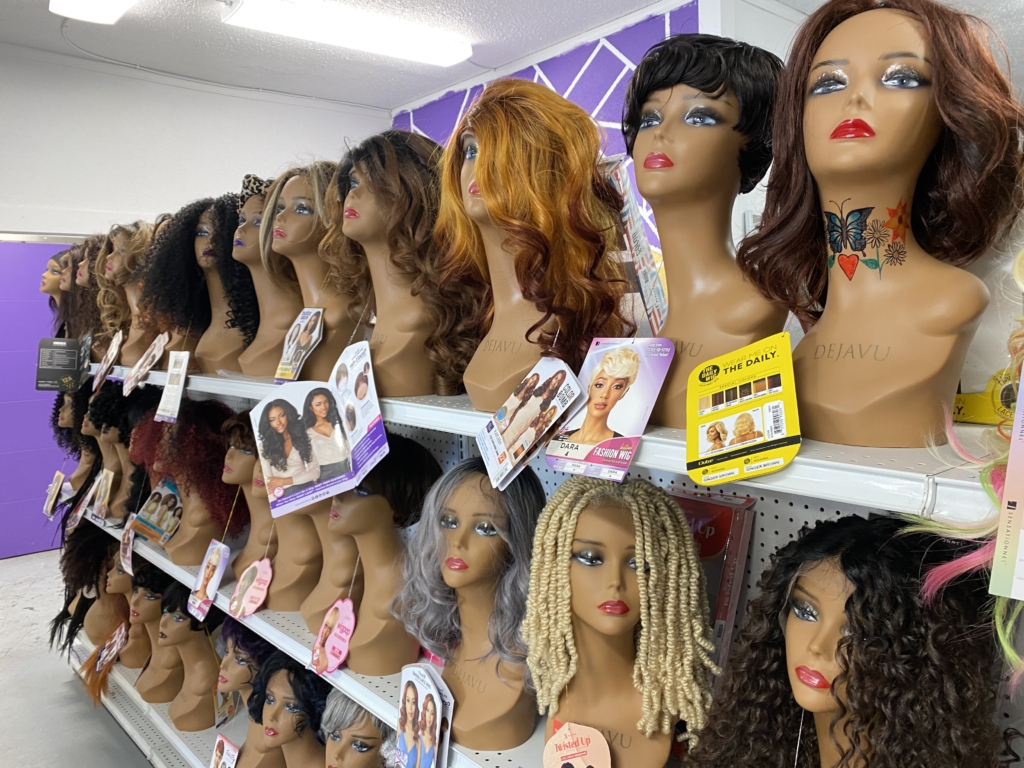
What was your experience like at hair supply stores before you opened your own, as a Black woman?
I was one of four Black women out of hundreds and hundreds in commercial insurance, before The Crown Act; that didn’t pass until 2022. The Crown Act basically said we couldn’t get discriminated against or not get a job for how your hair was. If you’re wearing locks or natural hair or anything like that. Yo, it just passed a year ago. It’s f*cking nuts. Sorry, I just cussed. I just get so mad about it.
And so when I was in commercial insurance, even though they might have never had to say it, there is this inherent thing. Especially as a Black woman to be like, “I need to I need to fit in. I need to look professional.” And it’s not that locks and braids and natural hair can’t be professional, but it depends on who’s running the company, or who your manager is.
I know insurance. I know what I’m doing. You haven’t had any losses. I know what I’m doing. I could have the heels. I could have the dress. I could have the diction. I could have all that. But if I got box braids? [shakes head]. And so unfortunately, I played the game. I definitely played the game. My mom used to laugh at me. I was like, Mom, I got to go get me a new Blunt Bang 18. That was that, you know, when they saw Matisse in that, they knew I was serious. I was about business.
So that meant that I was at a beauty supply store every two weeks to go get my wig so that I could blend in, so that I could be corporate, so I could be that person.And I just realized that every Saturday when I’m over here at the beauty supply store, it is full of Black women. And none of us own it.
Every beauty supply store I went to is full of Black women, and none of us owned it.
I could never go to a beauty supply store and go to the counter and say, “Hey, sis, my hair is doing this,” or, “I need this new bust down wig. I don’t know how to do a lace front. I don’t know how to even put it on.”
The person I’m talking to that owns the store cannot help me. And there’s also that undertow of they think you’re stealing. They’re watching you. They’re following you. Look at me, I get caught up in my words because I’m going back to like, man, we’d be out here on a struggle bus.
How did your battle with cancer play a role in your own hair journey, and your mission for your store?
When I got diagnosed, I was still working in insurance, and I needed that insurance. I needed my medical insurance.That meant I still had to work. I still had to look like I wasn’t sick. And I went to a wig store on a Saturday, bald, defeated, because I’m sick. I’m going through chemo and radiation. And there’s nobody there that can help me with a wig. There’s no one that can.
When you hear that you have the C word, the only other thing that’s more traumatic than that is trying to figure out how to still look like yourself. My husband didn’t know what to do, so he just gave me money and said, “Just go do something so you feel something.”
You look at the mannequin on the mannequin head. You’re looking around. There’s people there, so you don’t want to take your wig off. You don’t want to take your hat off. I grabbed three wigs that I thought might work. I got home, and none of them worked. And so I ended up calling in to work anyway.
I went home, and I cried. I said, “I’m spending money. Why do I feel like this? I shouldn’t feel like this.” And my husband got down on one knee. He was in the military for so many years, so he turns into Sergeant Hoyt. He grabs my knees, and he looks me in the eyes, and he’s like, “Do something about it.” Sir, that is not what I wanted to hear. Comfort me. And literally, he’s the one who was like, “There’s no way in hell you’re the only Black woman that feels like this. There’s no way in hell. Do something about it.”
So I went to Atlanta and other cities that had Black-owned beauty supply stores. And I was really blessed and lucky that three Black-owned business supply owners took me under their wing. They let me hang out at the store for three days. They told me things that I’d run into.
“There’s no way in hell you’re the only Black woman that feels like this. There’s no way in hell. Do something about it.”
Have you gotten the chance to help other women battling cancer?
I think I had been open for eight months when the reason I opened came in.
She came in, and she looked at the wigs, and she just broke down. And she was overwhelmed. And I went and got a chair, and I had a bottle of water. I locked the door. I said, “Hey, nobody else is in here. It’s just me and you. Show me five pictures of you when you felt prettiest. Boom. I like it. So you can be that new b*tch and get something else, or we can do this.”
And by the time she left, she turned around, and she said, “This is the first time that I felt like I could beat this.” And that’s when I knew I was in there.And I could still barely pay rent that year, but it was okay. I did what I needed to do. So, yeah, that was it. That was a huge motivator.
Why is it important to you that people #SpendLikeItMatters?
When you spend money with me, that money is bouncing right up the street. Whenever I make $100, that’s $100 to another woman Black-owned business here in Pierce County. Literally, that is literally what it is. I’m a fat girl. I say it all the time. I love to eat. Yesterday, as soon as I made my minimum for rent that I need to make per day, I called my homeboy that makes tamales.
When you shop at small businesses, we’re shopping at other small businesses. I call it an energetic economic ecosystem. What does that mean? I don’t know.
I feel like I’m an economist. I’m not. I feel like I’m a little hood economist, but I’m not. But it’s true. When you spend money at a small business, you’re supporting your neighbor up the street. I’m your neighbor. I live up the street. And when I get my money, guess what? I’m going to another small business up the street. And I might not be buying their products to have in my store, but that’s where I’m buying my food. That’s where I’m buying my clothes. That’s where I’m buying my jewelry.
When you shop at small businesses, we’re shopping at other small businesses. I call it an energetic economic ecosystem.
And small businesses understand the importance of small business. We always use this excuse or this example, but when your kid has a field trip coming up, Target isn’t donating sandwiches. Target’s not donating to help your kid get to Atlanta to go look at this thing. It’s us. It’s literally your neighbors.
It’s me remembering you. You can go get your shampoo from Target all you want. There’s nobody at Target that’s going to remember. “Oh, hey, girl, how did that blue hair do the last time you did that? How was prom? I saw your daughter on Instagram broke her arm.” Like that’s what you also get with supporting small businesses.
People always love to fantasize about Central Park friends, right? Like “I want to go to a coffee shop and they just know me and they know my shenanigans.” That’s what you get when you get a small business, when you get a small business and you support it in your neighborhood.
It’s running into you at the grocery store and me seeing you and being like, “I know you ain’t wearing your bonnet. There’s no way your hair is this. What are you doing? Come see me tomorrow.” And it’s not even really about the sale. It’s about you.
We heard you’re also know as the “community auntie”?
Something else you do when you support my business is I make hair care kits.
I used to be a volunteer mentor. And we, me and 10 other women, would adopt kids from the neighborhood. That’s where my idea of becoming your community auntie came from.
And something those girls would always ask for was hair stuff, whether they were in foster care or adopted or whatever. It was always hair care. But they the reason why I think they’ve asked for that is because it was so low on their rung of surviving.
It was so low on the rung of surviving that they were just like, “Oh, to treat myself, I’m going to get hair care.” And I’m like, girl, this is a necessity. And so as the community auntie, whenever I found products on sale, I would throw it in my trunk.
When kids are facing homelessness, when their parents are facing homelessness, hair care, that’s a last priority. They can’t care. Where are they eating? Where are they staying? And so having disposable income for hair care can be hard. But what I also know, something my mom used to always say is, “it is harder to build or to help a broken adult than to build up a child.” Something like that. I know what she meant.
And so in my mind, if I can get some hair care kits to help them, if I can get some hair care kits to help them feel like they’re normal, like they don’t stick out as far when they’re in school, if we can get the confidence, especially my Black girls and especially my Black babies, if we can make sure that their confidence ain’t just totally just down from the jump, then I think that we are making better adults in the end.
And I’m really fortunate that I have actually gotten hooked up with the Tacoma Public Schools houseless coordinating counselor. And so I’ve been able to give him about 20 hair care kits a quarter. And I just started being able to make teen hair care kits because the teenagers, they love baby hairs.
So you sell these kits that customers can buy for the kids?
Yep. And my newest thing that I’ve been doing is I ask them, “what neighborhood are you from?” “Oh, I’m from I’m from the Eastside.” OK, so if there’s a teenage one, it’s either going to First Creek or it’s going to Hunt.
And people are always surprised. I know I don’t have any kids, but I’m still just like Hilltop Heritage is the highest African-American population. This is that because that’s stuff that we need to know. And that would be another thing. Bring it back. Target don’t know that. Amazon don’t know that. Walmart don’t know that. Matisse know that.
And then I ended up getting the Compassionate Tacoma Award from the Mayor in 2022 because they’re just like, “Your haircare kits – all these parents found out about it and they had no idea where they were coming from.”
And then something else we started realizing is a lot of girls of color, specifically Black girls, end up with foster parents that don’t know how to work with their hair. And so in 2022, I started offering braiding classes.
A lot of girls of color, specifically Black girls, end up with foster parents that don’t know how to work with their hair.
We offer braiding classes to new parents and foster parents. I specifically love doing it for foster parents because foster parents, they get a rotation of kids. I have one foster parent that I see every month, she’s like, “Once I got this skill, I felt like I could do anything. I felt like I could really link up with these kids and really make them feel comfortable at home. Like it wasn’t just a I’m giving you the bare minimum. I’m giving you food. I’m giving you shelter. I’m giving you clothing. It’s like, oh, you have your first day of school. Do you want a French braid? Do you want a bubble braid? Do you want a fishtail?”
Another thing that I’ve realized with working here is I’m being here in Tacoma. We’re in the middle of a lot of military bases. A lot. Something that happens with military bases is there’s a lot of interracial couples. A lot of these couples are having kids with hair types that are like neither one of theirs. And they don’t know what to do. And that’s true. I say it can happen to any parent.
Washington is one of the most diverse states. I think Tacoma itself was number nine as one of the most diverse cities in the U.S. in 2019. And so that means there are a lot of kids running around here that don’t know how to do their own hair. Their parents don’t know how to do it either. So the braiding classes were like really, really, really like one of my most favorite things that I say that we offer here. It’s like just those little nuances, those little things that just make such a big difference.
BONUS:
Scan and upload your receipts from Mattice Beauty Supply through the end of February for a chance to win prizes from Seattle sports teams! You’ll also give Mattice a chance to win prices as well.
Want 20% off before you walk through the door? Purchase a Black Black Friday Card for any amount and get an instant 20% discount! Then, use it to shop wigs, hair care products, brushes, styling tools, and more at Mattice Beauty Supply. Load any amount onto the card, and the 20% discount is automatically applied at checkout, thanks to BECU.
You’ll save big while supporting Black-owned businesses in the Seattle area. Learn more and get yours today!
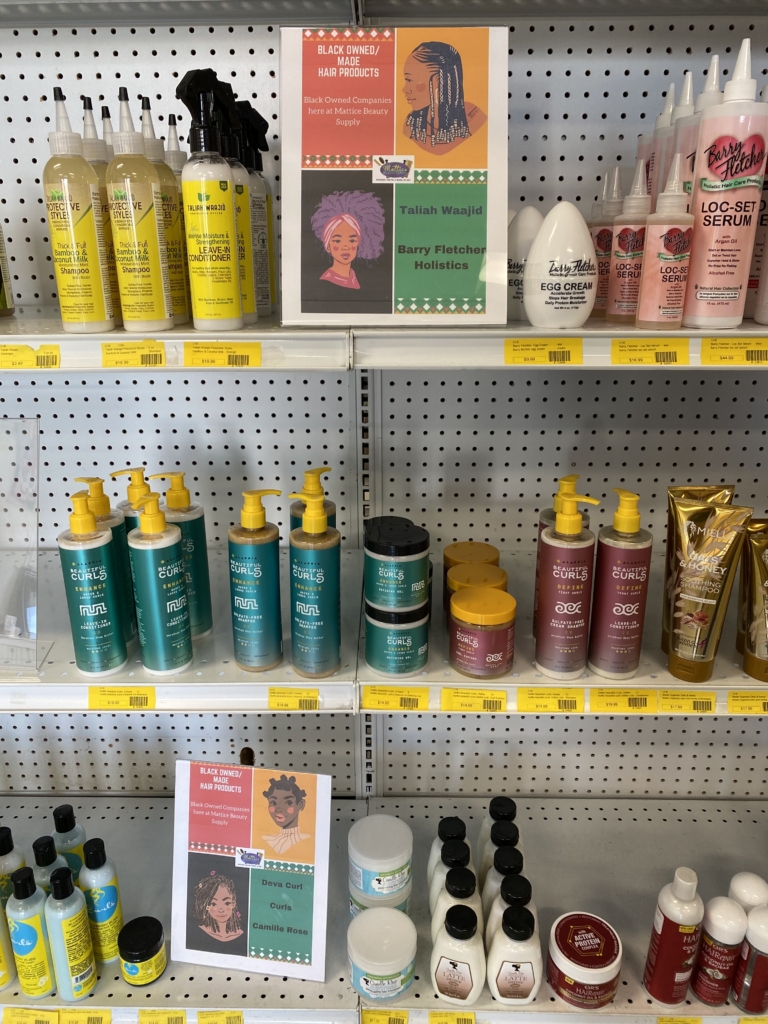
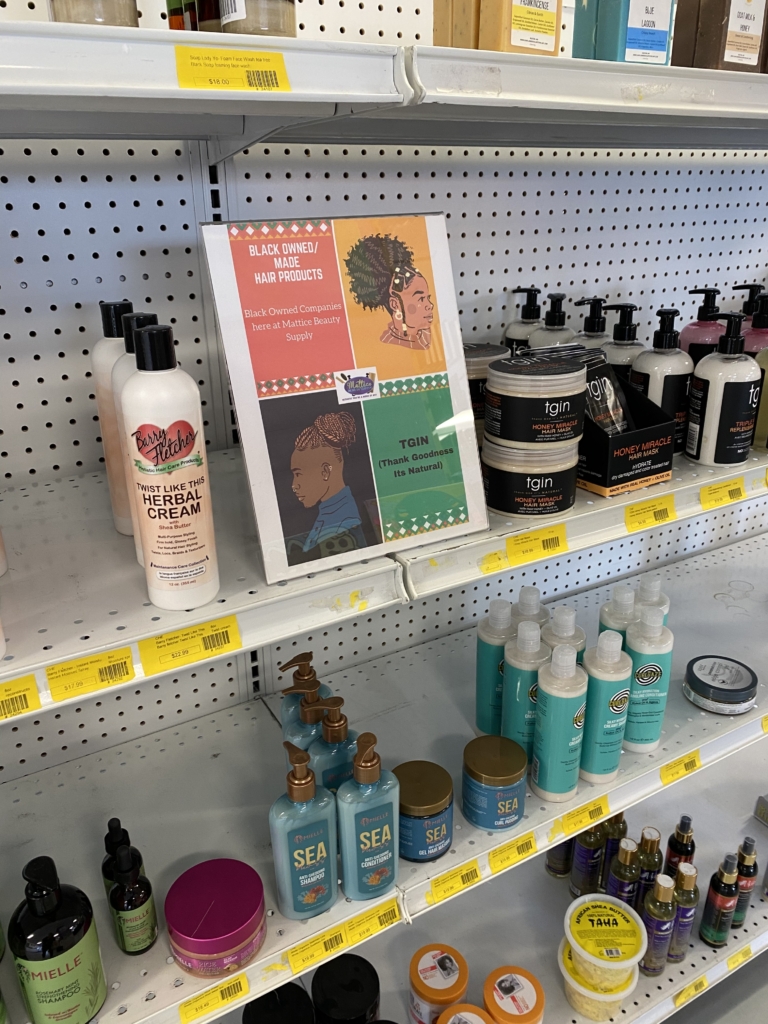
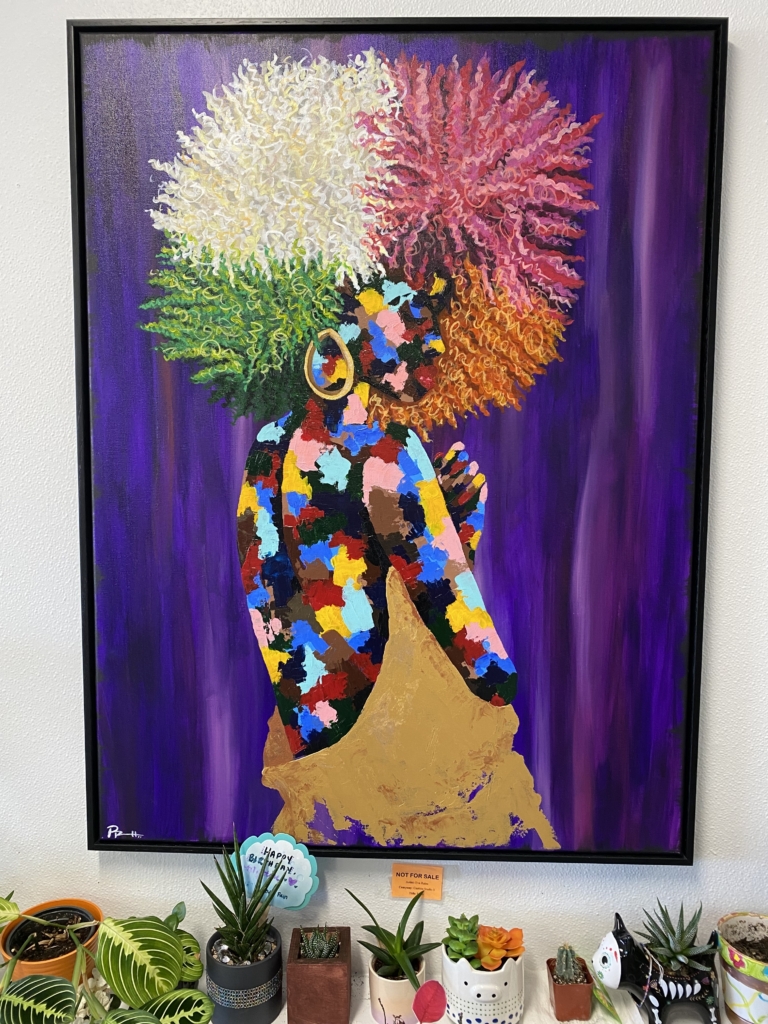
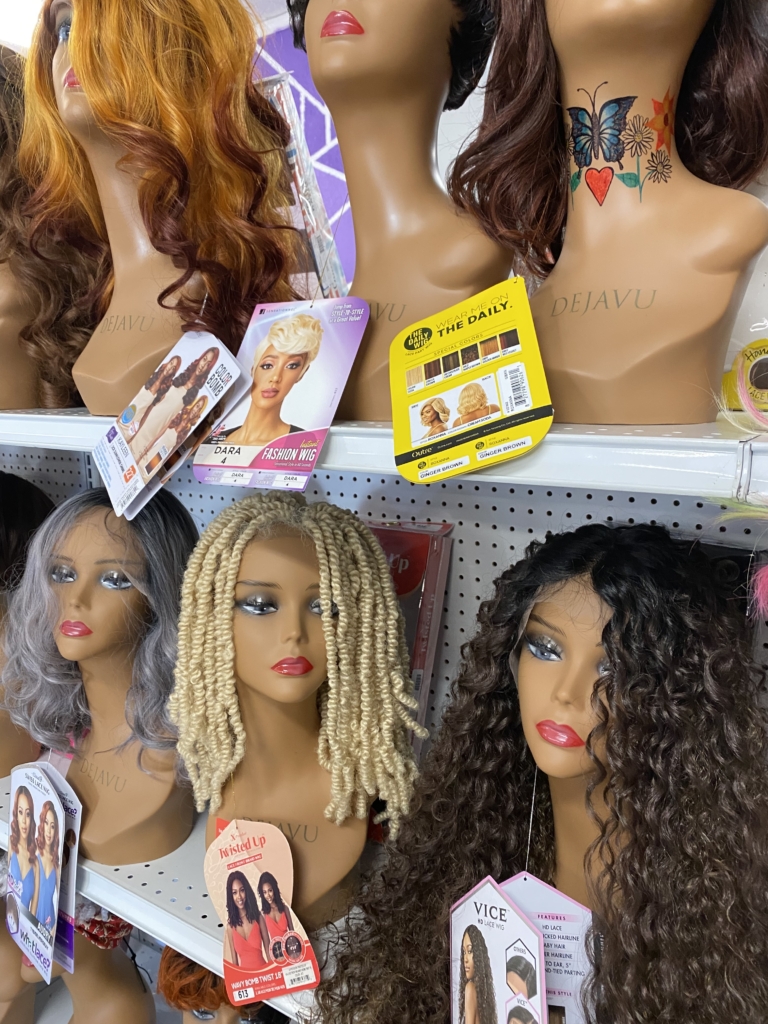
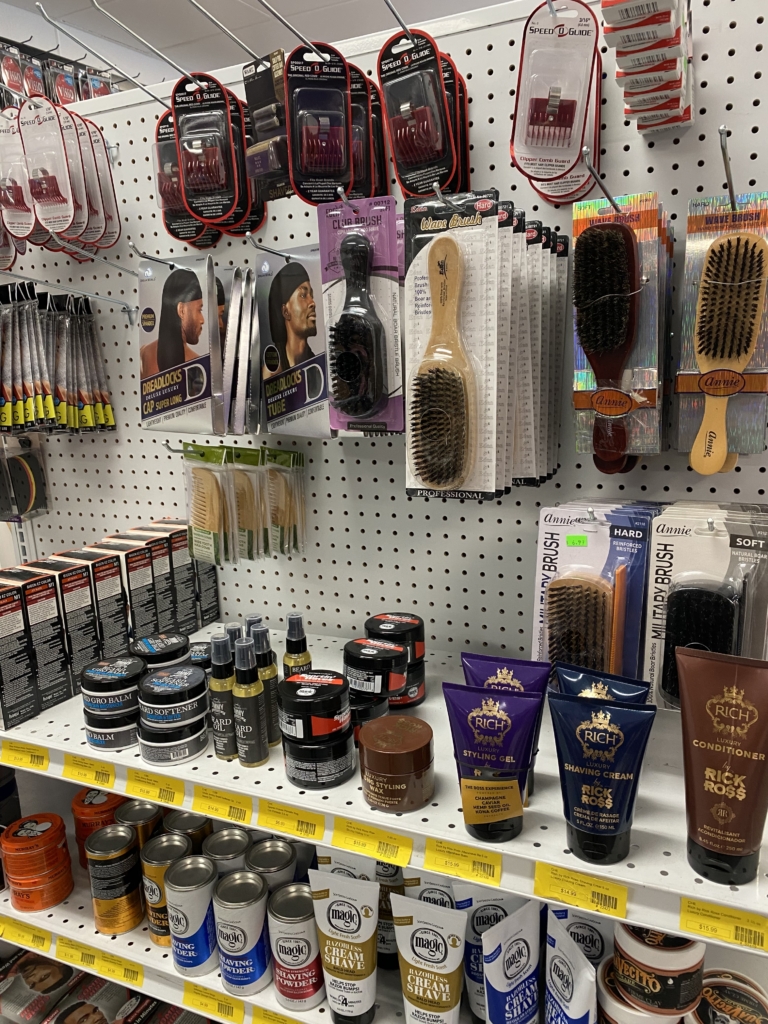
This was so heartwarming to read! When my mother started chemo she was frustrated that none of the white-owned wig stores could answer her questions and work with East Asian hair; I can imagine how much more frustrating it is as a Black woman! So glad you started this business to provide such a necessary resource to the community! <3